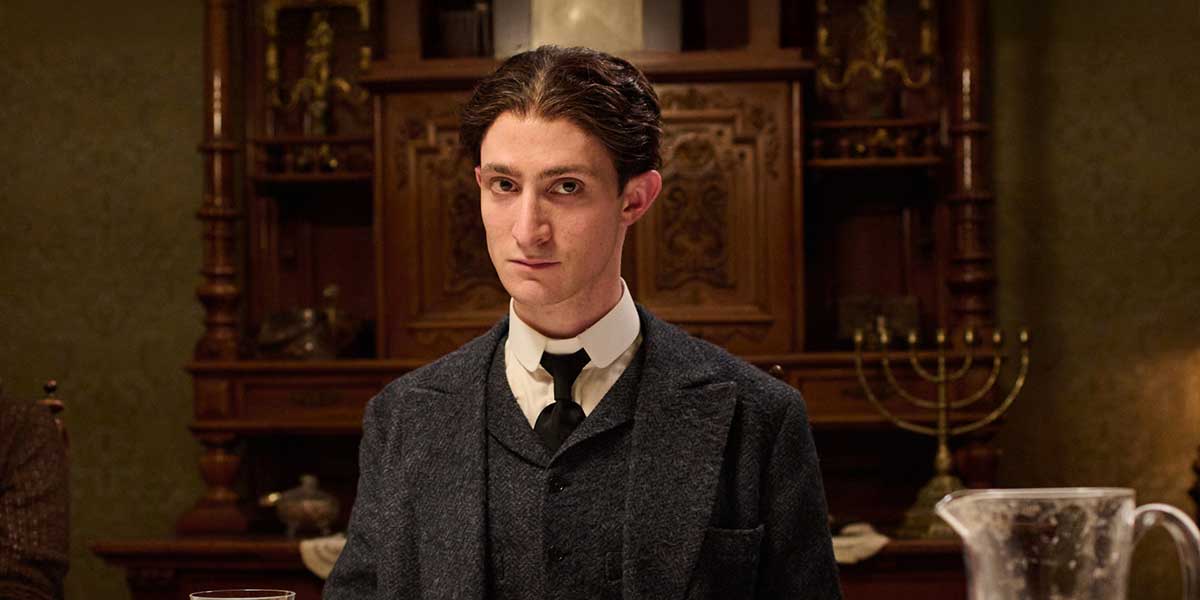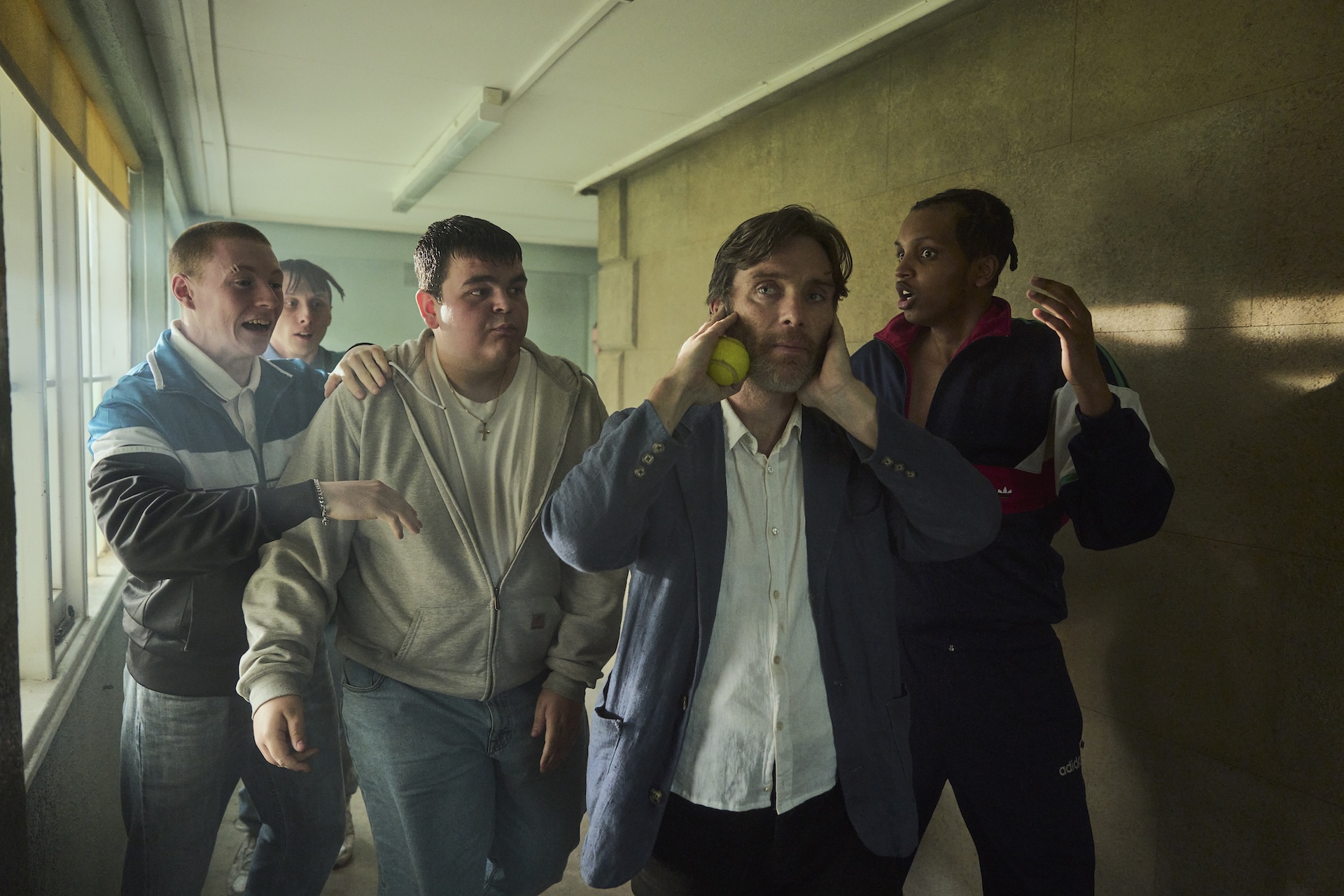I fell in love with John Candy the moment I saw him serve up those shovel-sized pancakes in “Uncle Buck.” John Hughes wrote the part of Uncle Buck specifically for Candy, and the uncle’s affection for his nieces and nephew was true in real life too.
Now, over 30 years after Candy’s death in 1994, comes a new documentary “John Candy: I Like Me,” full of funny anecdotes about a guy virtually everyone liked and also what being that guy cost him. Directed by Colin Hanks, it premiered on opening night of the 2025 Toronto International Film Festival with Hanks, producer Ryan Reynolds, and Candy’s children, co-executive producers Chris Candy and Jennifer Candy-Sullivan, onstage for a post-screening Q&A.
If you already loved John Candy, this doc will make you love him even more. If you were born after his time, it will be a lovely introduction. Still, the way the doc lingers on its unabashed celebration of Candy’s life and work yet rushes through its brief examination of his psyche prevents it from being a total knockout.
From Candy’s SCTV improv buddies—Martin Short, Catherine O’Hara, Eugene Levy, Dave Hall, Andrea Martin—to Hollywood collaborators like Steve Martin, Tom Hanks, and Mel Brooks, to close friends Dan Aykroyd and Bill Murray, the film is overflowing with household names. A history of the Toronto sketch comedy scene runs as a convenient subplot.
Some of the most memorable commentary comes from Bill Murray, who is the first and last person to appear. At the premiere, Reynolds said Murray was the hardest person to book. After many unreturned calls and even ghosting a set date, Reynolds finally got Murray to agree when he sent him a video of his then two-year-old son saying, “Do the interview.”
Murray sets up one of the narrative difficulties of the film: John Candy was practically a saint, and it’s hard to find people who have anything negative to say. The film leans into this and focuses primarily on celebrating Candy, who appeared in more than 30 films and died of a heart attack alone in his hotel room on a shoot in Durango, Mexico. He was 43 years old. We learn early on that Candy’s own father, whom he strongly resembled, died of a heart attack when John was just five. He lived with the fear that he too would meet an early grave like his father.
The slew of interviews from family, friends, and colleagues forms the skeleton of the film, alongside clips from Candy’s extensive filmography dating back to the mid-1970s. The archival footage of Candy — on set and at home with his kids — gives the film vitality, and the intimate, relaxed settings where interviewees recount memories of the man who left their lives too soon evoke home and hold the film together visually. The score includes heart-wrenching music sung by a poised Cynthia Erivo, recorded especially for the film. It’s a sincere lovefest, warm without being cloying.
But Hanks’ second documentary feature has a classic problem: it lacks editorial discipline. In other words, it’s too long. The reason is a good problem to have — too many beloved stars who rarely give interviews and genuinely wanted to talk about Candy. For example, the now 40-something Macaulay Culkin, who recalls the fatherly care and bond he felt with Candy at a time when his own father and manager was neglecting the child megastar, has some of the most interesting things to say about Candy, but doesn’t appear until the last act. But the recent interview with Dan Akroyd, while nice to see him on camera again, added very little to Candy’s narrative and could’ve been left on the cutting room floor.
Too often the tension between who Candy was to others and who he was to himself gets lost, veering away from the “I Like Me” ethos. (That line comes from another John Hughes’ film, “Planes, Trains and Automobiles,” in which Candy plays a lovable loser opposite Steve Martin.)
One of the places where the movie reaches beyond simply getting the band back together again is when Candy’s son Chris says that in his father’s last years “his mind was overweight,” complicating the narrative that Candy was unjustly lumped in with “living fast and dying young.” On top of eating his feelings — not to mention smoking and drinking them — Candy, according to his son, a personal trainer, and others included in the doc, increasingly suffered from anxiety and panic attacks as his career slowed and his responsibilities as a businessman grew. Conan O’Brien, recalling when the Harvard Lampoon staff brought Candy to campus, adds a salient point: “The hazard of this business is that it’s very unhealthy for people pleasers.”
What the film eventually draws out is that it wasn’t just Candy’s weight that killed him, but a toxic combination of anxiety, stress, and genetic predisposition to heart disease and obesity. Ultimately the film positions Candy’s legacy as one of a decent guy and a talented performer who, as his daughter Jennifer says, “took care of people,” on and off set. But just as important is how it unravels the long shadow cast by a five-year-old boy’s way of coping with the traumatic loss of a parent.
Many interviewees, like Catherine O’Hara and Candy’s “Splash” castmate Tom Hanks, said that whether acting or not, Candy was extremely present when you were with him. Yet the film doesn’t provide enough space for us to feel that presence. Viewers don’t get much of a chance to sit with the particulars of Candy’s life before the film moves on to the next anecdote. One longs to see a full scene of Candy in action onscreen or in a home video, rather than just snippets. There also wasn’t enough of Candy speaking for himself, rather than people telling us how great he was.
The interviews from the SCTV crew, who had a front-row seat to Candy before and after he became a star, were the most compelling. The doc would have benefitted from more of Catherine O’Hara, shown in the film giving a touching tribute at Candy’s 1994 funeral, whose commentary felt especially rich but truncated.
In the end, Hanks delivers a good, but not great, portrait of a lovable guy whose shortcomings took him out — an ordinary guy with extraordinary talent who remains one of the best comedic actors of the 20th century.
Grade: B-
“John Candy: I Like Me” premiered at the 2025 Toronto International Film Festival. It will stream on Prime Video beginning on October 10.
Want to stay up to date on IndieWire’s film reviews and critical thoughts? Subscribe here to our newly launched newsletter, In Review by David Ehrlich, in which our Chief Film Critic and Head Reviews Editor rounds up the best new reviews and streaming picks along with some exclusive musings — all only available to subscribers.



